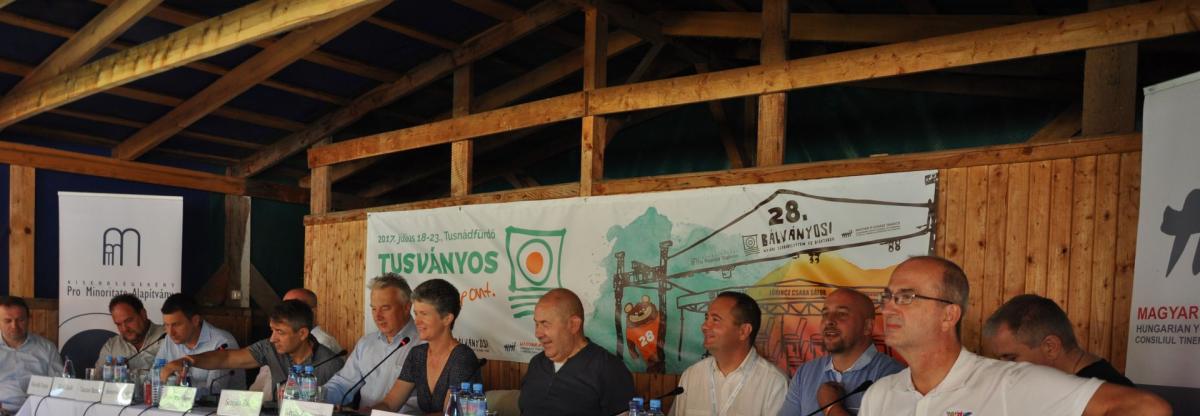
The political leaders of the (ethnic) Hungarian parties of Transylvania (Romania), Vojvodina (Serbia), Slovakia and Transcarpathia (Ukraine) reported their experience on their decades-long struggle for the enforcement of minority rights in a Thursday afternoon panel discussion at the 28th Bálványos Summer Open University and Student Camp (Romania).
Attila Korodi, the leader of the parliamentary group of the Democratic Alliance of Hungarians in Romania (RMDSZ), said that legislation on minorities has slowed down since the accession of Romania to the European Union in the country. While Bucharest states that Romania is an “example to follow” with regard to the protection of minorities, he thinks that it has knowingly concealed conventions on minority rights, EU recommendations and charters which were ratified by itself as well, but it has not complied with their provisions. Romania has not adopted the collective rights of minorities, the draft of a Minority Act — involving cultural autonomy as well — therefore has been gathering dust in Parliament for 12 years now, the group leader explained.
István Pásztor, President of the Alliance of Vojvodina Hungarians (VMSZ, Serbia), considered that the Hungarian minority is being regarded as valued and respected members of society, and not as a risk factor in Serbia. According to him, that is mainly due to the active participation of the VMSZ in public life and the improvement in the relationship between Hungary and Serbia. István Pásztor said that the efficient financial support provided by the Hungarian Government has played an important role in promoting the stay of Vojvodina Hungarian community in the land of their birth.
József Menyhárt, President of the Party of the Hungarian Community in Slovakia (SMK-MKP, Slovakia), when describing the Slovakian Hungarians’ difficulties with their right to use their native language, argued that the Governments of the former Soviet countries consciously restrict the linguistic rights of minorities by applying the “who own the country own the language” principle. As regards the Minority Culture Fund which the (ethnically) mixed party Most-Híd being represented in the Parliament had managed to pass, he further argued that partial results should not be regarded as an overwhelming success, and should not be “applauded”.
President of the SMK-MKP is hoping for a major step forward in promoting the European minority protection from the Minority SafePack European citizens’ initiative developed by the RMDSZ and put forward together with the umbrella organisation for European minorities, FUEN; the SMK-MKP has promised to duly participate in the signature-collection campaign in support of the Minority SafePack.
László Brenzovics, President of the Cultural Alliance of Hungarians in Transcarpathia (KMKSZ, Ukraine), recalled that the Transcarpathian Hungarian minority had been “in the best position” following the political change in 1989, today, however, they cannot even enforce most of their minority rights, and — especially the anti- Russian — Ukrainian nationalism is threatening them with the abolishment of these rights. The Transcarpathian Hungarian minority numbering approximately 150,000 gathered 65,000 signatures in the spring to protest at the draft laws aimed at restricting the rights of minorities to use their own language and their educational rights. The draft laws aimed at “Ukrainezing” the media, as well as the education, are pending in the Parliament, and the Parliament is seeking to restrict minority rights by means of surreptitious amendment to the Constitution, President of the KMKSZ further detailed.
(MTI, 20 July 2017)
Minority Report / Bulletin on the Hungarian Community in Slovakia